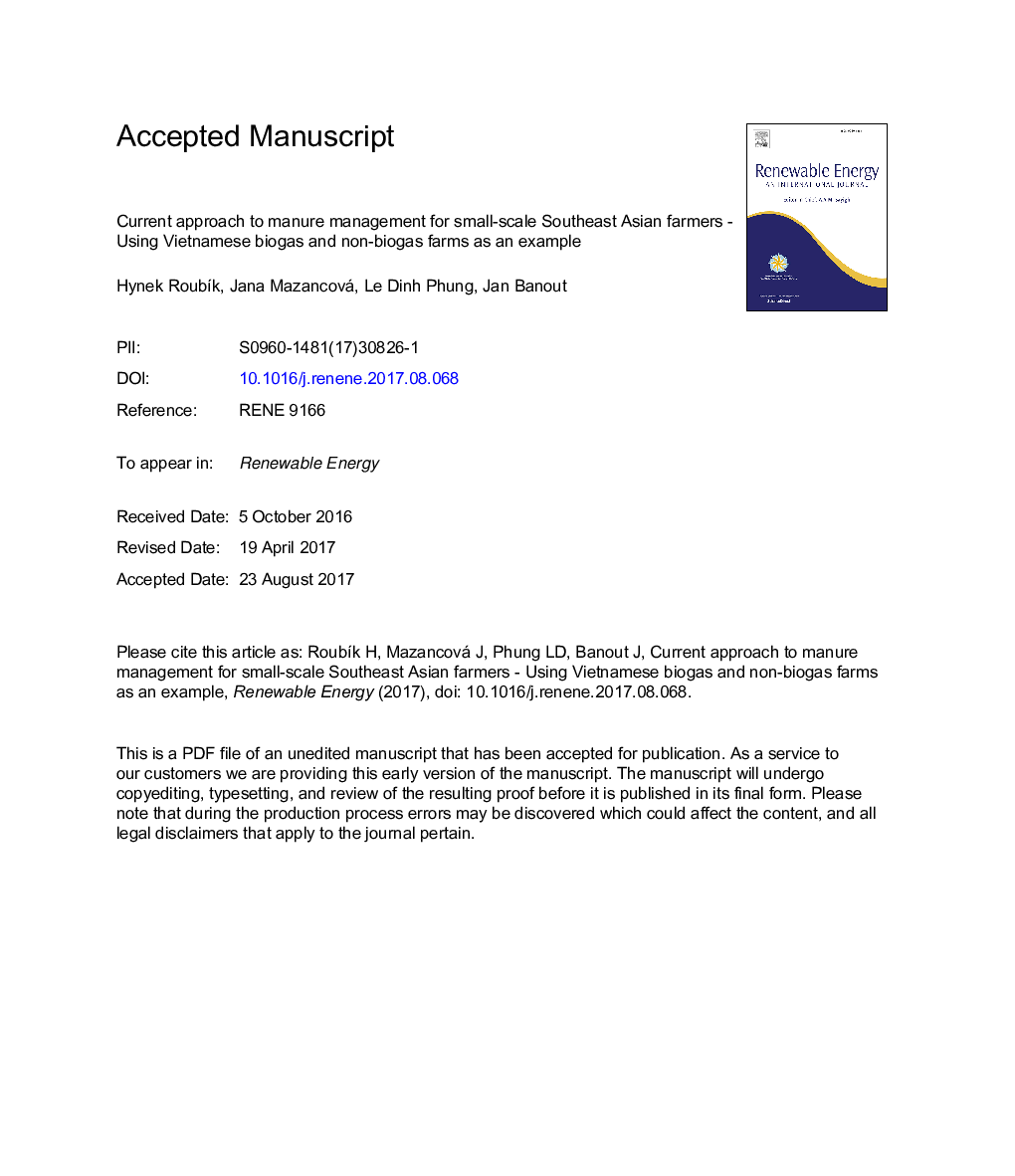| Article ID | Journal | Published Year | Pages | File Type |
|---|---|---|---|---|
| 6765225 | Renewable Energy | 2018 | 39 Pages |
Abstract
Pig manure is produced in large volumes in Vietnam. If managed properly it reduces waste volume and produces plant nutrient-rich residues. If not managed properly, it leads to negative effects on environment. The objective of this paper is to investigate and analyse all aspects of current manure management practices in Vietnam. A survey was conducted among biogas plants owners (n = 141), small-scale farmers with no biogas plants (n = 50) and local authorities and facilitators (n = 9) via focus group discussions, semi-structured interviews and a questionnaire survey in 2012 and 2013. All households surveyed housed their pigs in concrete pigpens with natural ventilation. Manure was treated in all surveyed households with biogas plants compared to only 24% of households without biogas plants. The knowledge and the management of digestate were recognized as unsatisfactory. Respondents appreciated improvement in environment and economic benefit due to the use of biogas plants. The potential of biogas daily production per household is more than two times higher (2.32 m3 than the actual production (1.09 m3). This paper provides an in-depth understanding of various problems with the management of digestate and considers possible risks. The findings have practical implications for manure management practices in Vietnam and other Southeast Asian countries.
Related Topics
Physical Sciences and Engineering
Energy
Renewable Energy, Sustainability and the Environment
Authors
Hynek RoubÃk, Jana Mazancová, Le Dinh Phung, Jan Banout,
